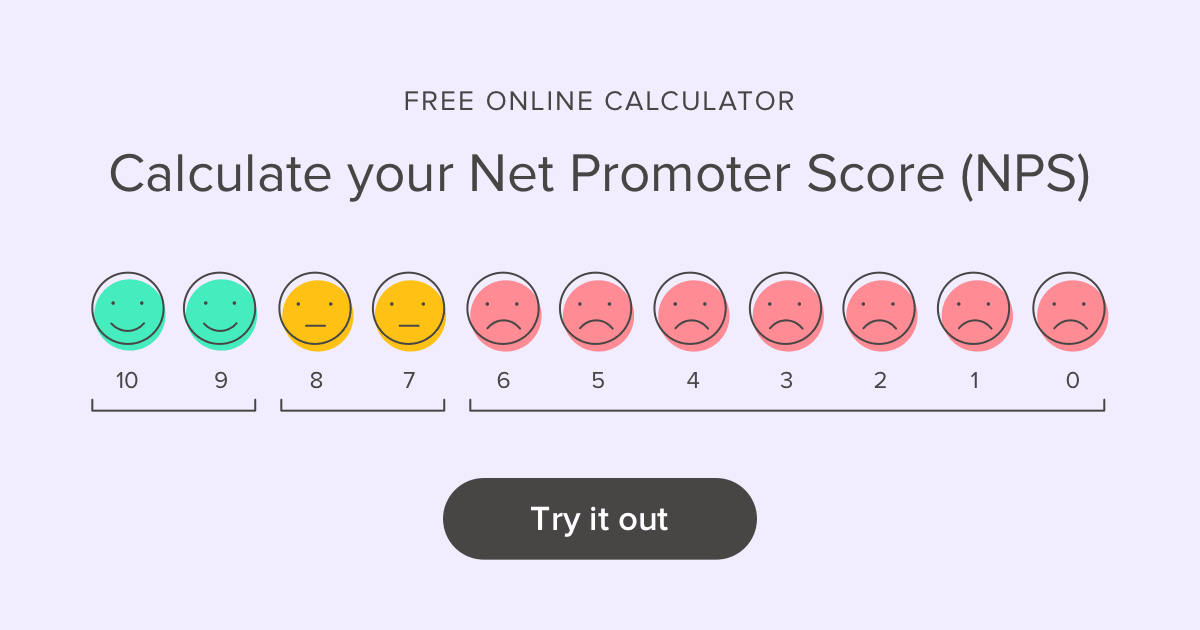Understanding The Importance Of NPS Score Calculation
Net Promoter Score (NPS) is a metric used to measure customer loyalty and satisfaction. It is a valuable tool for businesses to gauge how likely their customers are to recommend their products or services to others. Calculating NPS score is essential for companies to understand the overall sentiment of their customer base and make informed decisions to improve their offerings.
So, how exactly can you calculate NPS score effectively to gain meaningful insights into your customer satisfaction levels? In this article, we will delve into the details of NPS score calculation, its significance, and the steps you can take to measure and interpret this crucial metric.
What is NPS Score and Why is it Important?
Before we dive into the specifics of calculating NPS score, let's first understand what NPS score is and why it holds significance for businesses. NPS score is a measure of customer loyalty and satisfaction that is derived from the answer to a single question: "How likely are you to recommend our product/service to a friend or colleague?" The significance of NPS score lies in its ability to provide a clear indication of the overall customer satisfaction and loyalty towards a brand or company.
How To Calculate NPS Score?
Calculating NPS score involves a simple yet powerful methodology that can offer valuable insights into customer sentiment. The first step in the process is to gather feedback from customers by asking them the ultimate question: "How likely are you to recommend our product/service to a friend or colleague?" The customers are then asked to rate their likelihood on a scale of 0 to 10, with 0 being "not at all likely" and 10 being "extremely likely."
What are the Promoters, Passives, and Detractors?
Once the responses are collected, customers are categorized into three groups based on their ratings. Those who provide a rating of 9 or 10 are labeled as Promoters, indicating a high likelihood of recommending the product or service. Customers who rate 7 or 8 are categorized as Passives, signifying a neutral sentiment. On the other hand, those who rate 0 to 6 are identified as Detractors, representing a low likelihood of recommendation.
Why is NPS Score Calculation a Key Performance Indicator?
NPS score calculation serves as a key performance indicator for businesses due to its ability to offer actionable insights into customer satisfaction and loyalty. By understanding the distribution of Promoters, Passives, and Detractors, companies can identify areas for improvement and focus on strategies to convert Detractors into Promoters. Additionally, NPS score calculation allows businesses to benchmark their performance against industry standards and track their progress over time.
Steps to Measure and Interpret NPS Score
Measuring and interpreting NPS score involves a systematic approach to gain valuable insights. The following steps outline the process of effectively measuring and interpreting NPS score:
- Gather customer feedback by asking the NPS question.
- Categorize customers into Promoters, Passives, and Detractors based on their ratings.
- Calculate the NPS score by subtracting the percentage of Detractors from the percentage of Promoters.
- Interpret the NPS score to understand the overall customer sentiment and identify areas for improvement.
How Can Companies Use NPS Score to Drive Business Growth?
Companies can leverage the insights gained from NPS score calculation to drive business growth by focusing on strategies to enhance customer satisfaction and loyalty. By addressing the concerns of Detractors and engaging with Promoters, businesses can build a loyal customer base and benefit from positive word-of-mouth referrals.
What Role Does NPS Score Calculation Play in Customer-Centric Approach?
NPS score calculation aligns with a customer-centric approach by placing a strong emphasis on understanding and addressing the needs and preferences of customers. By regularly measuring and analyzing the NPS score, businesses can prioritize customer satisfaction and loyalty, ultimately leading to enhanced customer experiences and long-term relationships.
In conclusion, the process of calculating NPS score holds immense value for businesses seeking to understand and improve customer loyalty and satisfaction. By following the steps outlined and interpreting the insights gained from NPS score calculation, companies can make informed decisions to drive growth and success.
- Who Is Spencer Elden Meet
- Jerry Lopez Obituary And Cause Of Death
- Shirley Temple S Net Worth Biography Fact Career

How to Measure Net Promoter Score (NPS) for Customer Success

NPS Calculator Calculate your Net Promoter Score

O que é NPS, como calcular Net Promoter Score e exemplos